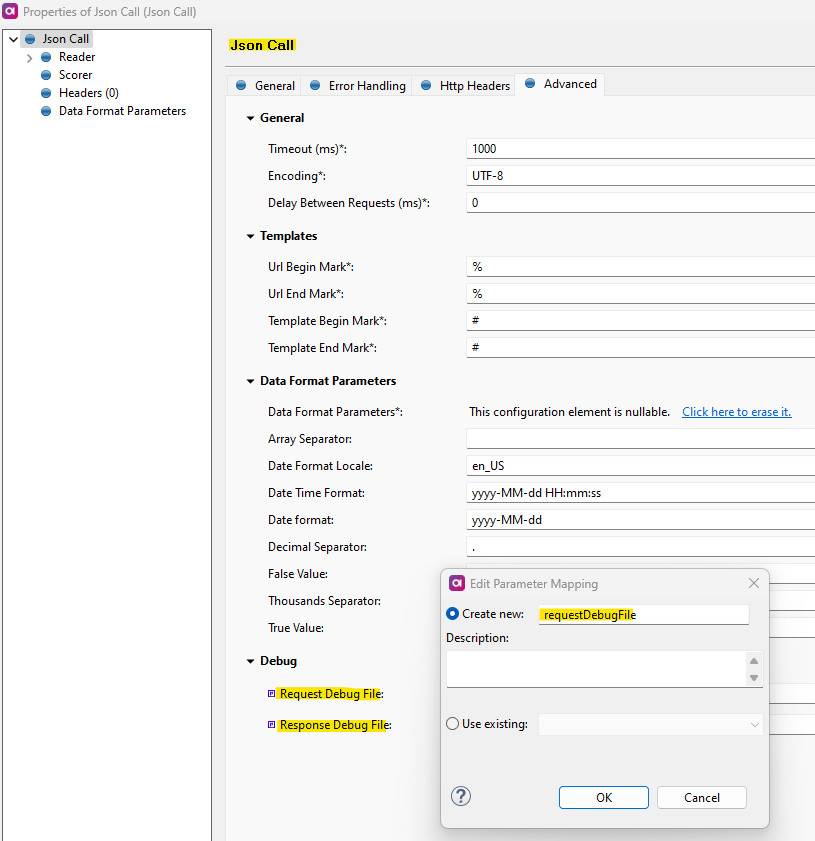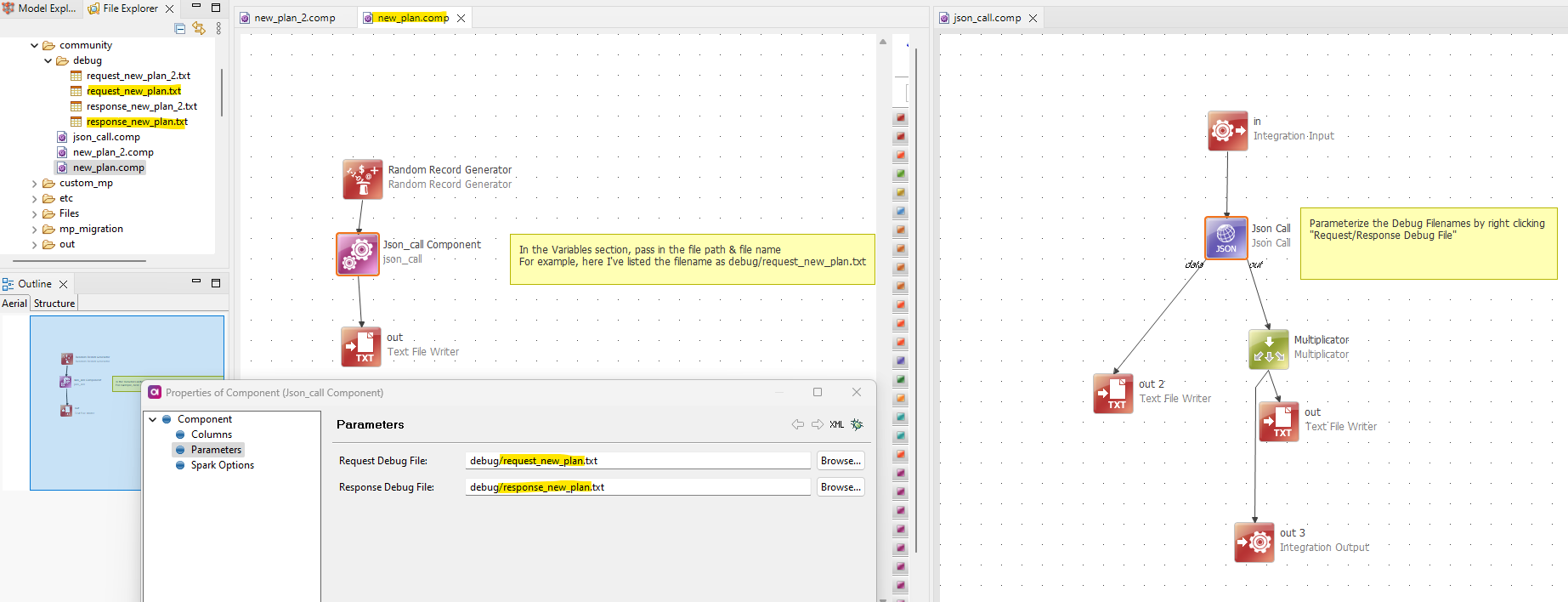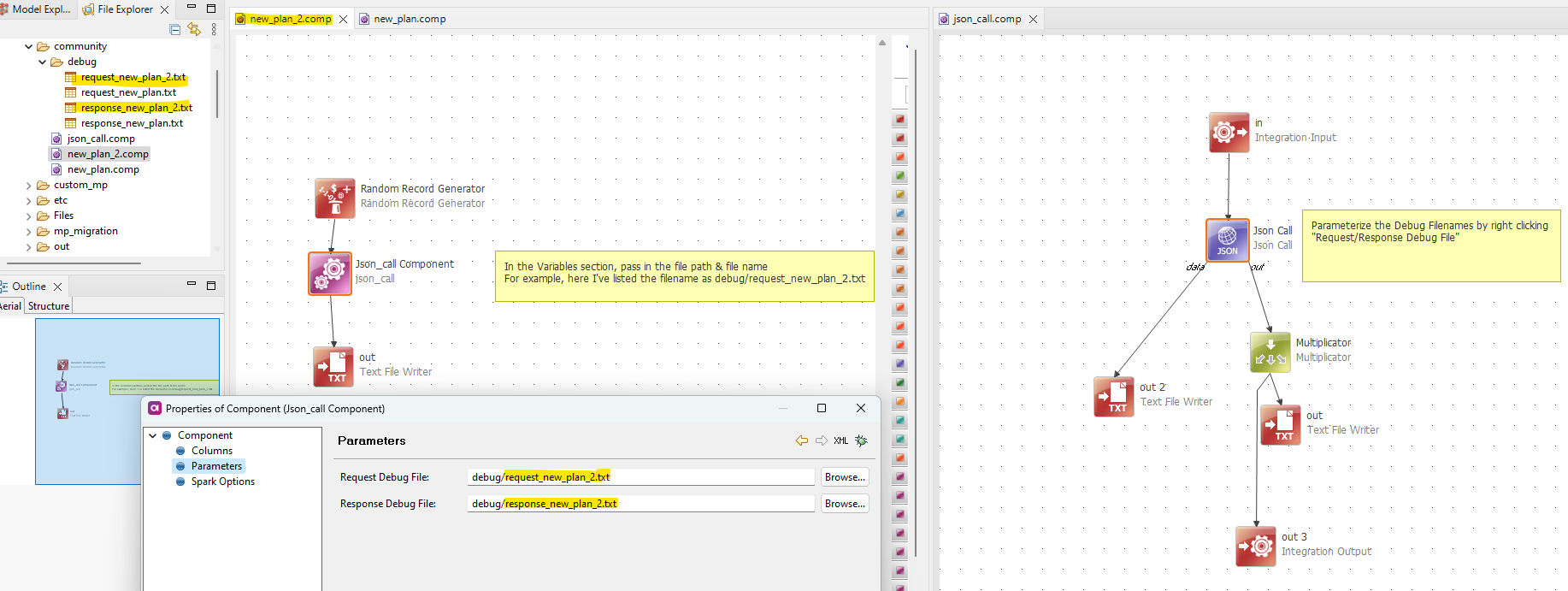I know that it is possible to use variables in filenames in a Text Writer (see here: Text File Writer: adding a datetime as suffix to an output file (ataccama.com)). But what about the Request and Response Debug File in a Json Call?
I have a component for ServiceNow integration and I want to reuse another component to retrieve incident details. But when I run the main component I get this error:
File file://d:/Ataccama/workspace/SNOW/distribution/debug/03_getincdetails_request_debug.txt must not be multiplicatively accessed in writing mode.
The only way to get it all working, is by removing the Request and Response Debug File in the Json Call that gets incident details. A possible way around this would be if I could use variables in the filenames. But this does not seem to work in the same way that variables work in Text Writer steps (by putting the variable name between { } ).
Is there another way?



